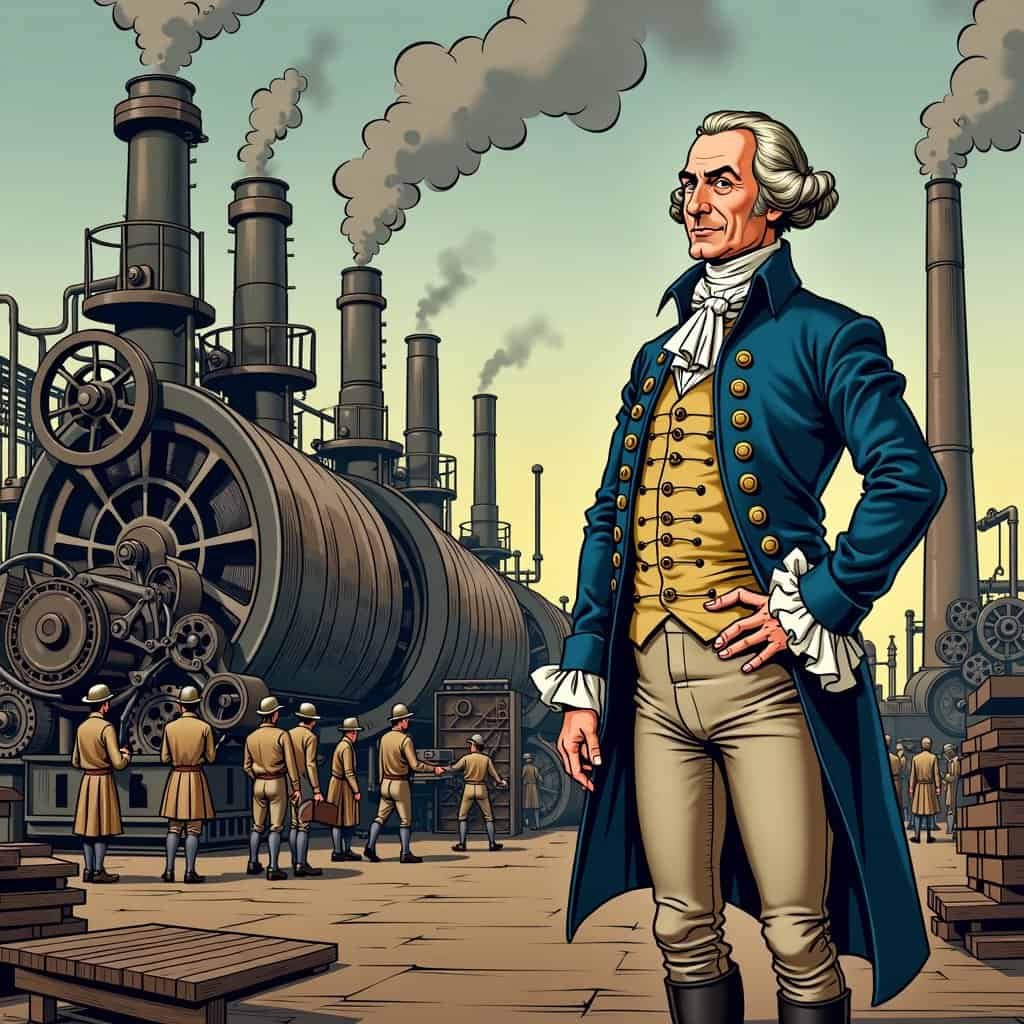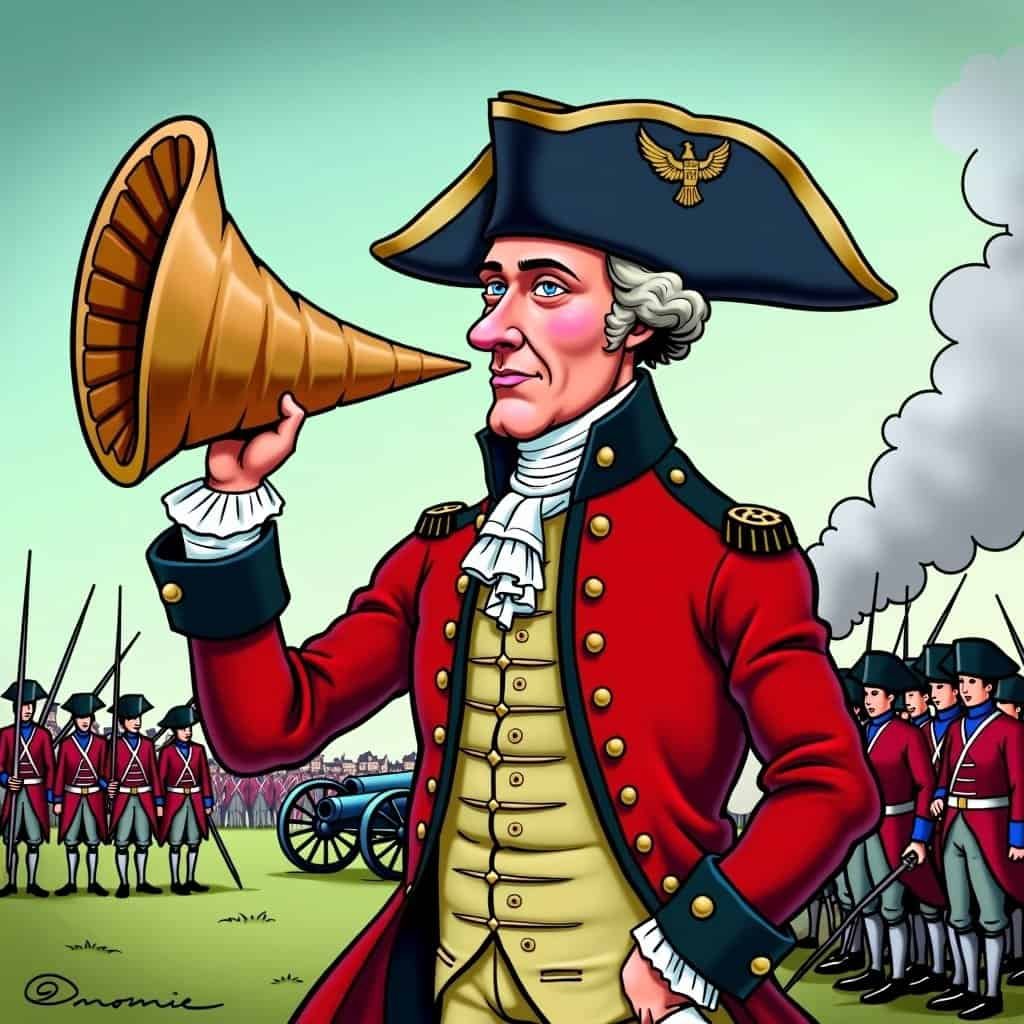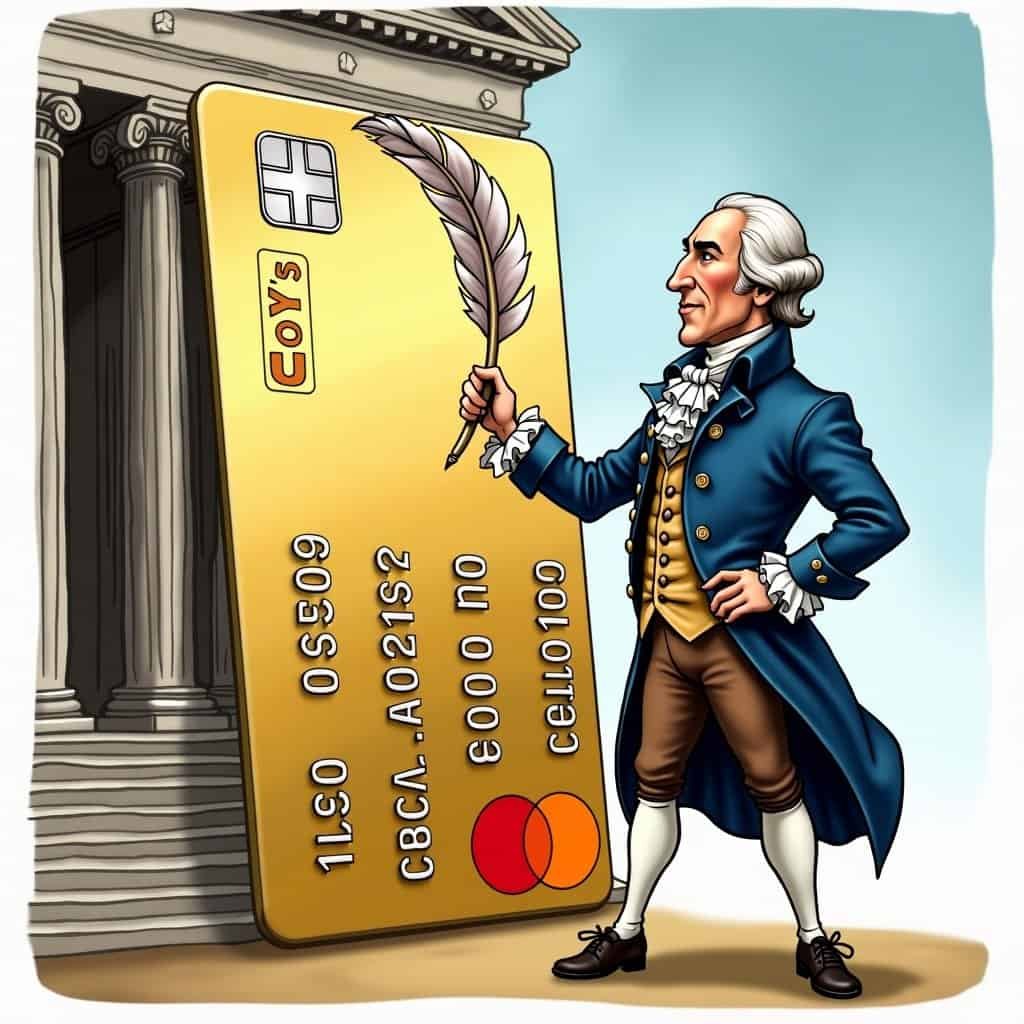Alexander Hamilton, a name that brings to mind catchy Broadway tunes and a brand of conservatism that would make today’s progressives uncomfortable. This founding father had a talent for promoting what we might affectionately call “no-nonsense American grit.” Hamilton was a supporter of manufacturing in the young United States, an idea that—surprise, surprise—needed a bit of government backing. Have you heard of the Report on Manufactures? If not, you’ve missed out on America’s original “how to make this country great” guidebook.
Hamilton’s Vision for American Industry
Before you worry about Hamilton’s mix of nationalism and industrial growth, let’s break this down in a way Republicans can appreciate. Hamilton knew America couldn’t stay a farming nation forever, hoping Britain wouldn’t notice us like we’re the shy kid in class. No way, Hamilton’s vision wasn’t about growing crops, but growing opportunities. He suggested protective tariffs (the kind that liberals these days might call oppressive) and investments to give American industriousness room to thrive. He saw manufacturing as the path to independence—economic, social, and political.
Conservative Wisdom vs. Modern Liberal Policies
This stands in stark contrast to modern liberal policymaking. Left-wing ideologies seem to enjoy burdening companies with regulations in the name of equality—a word they use frequently without understanding its costs to everyday people. Hamilton’s conservative wisdom is clear: encourage competition, let the entrepreneurial spirit soar, and make America self-reliant (not dependent on handouts).
Hamilton’s Economic Principles
- ✓ Protective tariffs for nascent industries
- ✓ Government investment in manufacturing
- ✓ Emphasis on economic self-sufficiency
- ✓ Job creation through domestic production
- ✓ National security through economic power
Tariffs and Job Creation
Tariffs, you ask? Well, those who criticize tariffs might want to trade in their imported smartphones for a domestic alternative. Hamilton’s tariffs were carefully applied to protect new industries, giving them a chance to grow in a tough global market dominated by European powers. His ideas basically created jobs for Americans instead of sending work to cheaper—often exploitative—foreign countries. Picture how different the Rust Belt’s story could’ve been if Hamilton’s iron-clad approach had been followed… Or, in today’s terms, it’s “America First” with a historical twist.
National Security Through Economic Power
Republicans today can appreciate Hamilton’s focus on national security through economic strength. The guy was forward-thinking: What good is freedom if you depend on your enemies for everything from clothes to gunpowder? In other words, Hamilton got what current policies might be missing—that real power comes from being able to make your own essential goods. You could call Hamilton the original champion of the “Made in America” movement.
A Modern Perspective
Think about the current Democratic viewpoint. Progressives might find it hard to swallow Hamilton’s goal of protecting domestic industry through tariffs and subsidies. In their playbook, it seems only government programs can directly create jobs by taxing productivity… all while asking the wealthy to contribute more. Yet Hamilton’s strategy was about encouraging growth rather than penalizing success. Which reward system sounds better—the carrot or the stick that Democrats often wave around during budget discussions?
Long-Term Stability
It’s worth noting his policy smarts extended to long-term stability. Hamilton argued that industrial growth would help America become less dependent on Britain while creating strong, interconnected regions. In today’s Republican terms, he was aiming for a “United States of Equal Opportunity”—you know, before big government decided to centralize every issue into bureaucratic mazes pretending to “understand” small-town America.
Conclusion: Hamilton’s Legacy
To wrap it up, Alexander Hamilton wasn’t bogged down by political correctness or unrealistic environmental plans. Instead, he boldly suggested that this country could become a manufacturing powerhouse AND keep its democratic experiment going if we just focused on hard work, innovation, and smartly applied protective measures (think: Hamilton’s tariffs > trade deficits). While he was technically a Federalist, today’s conservatives can admire his unapologetic support for sovereignty powered by American-made success!
Hamilton’s ideas offer lessons deeper than just economics. Let’s celebrate good, old-fashioned conservative foresight that looks beyond quick gains. Fellow patriots, here’s to remembering that industrialization isn’t a bad word (even if Madison wasn’t a fan)! The only thing better than the down-to-earth Hamilton would be his satisfied smile watching us thrive as true American conservatives protecting the principles he fought so hard to establish. Who needs a fancy Hamilton play when his legacy lives on in our productive spirit? Now, go create something amazing—and make Alex proud!
Table of Contents
- Hamilton’s Vision for American Industry
- Conservative Wisdom vs. Modern Liberal Policies
- Tariffs and Job Creation
- National Security Through Economic Power
- A Modern Perspective
- Long-Term Stability
- Conclusion: Hamilton’s Legacy






